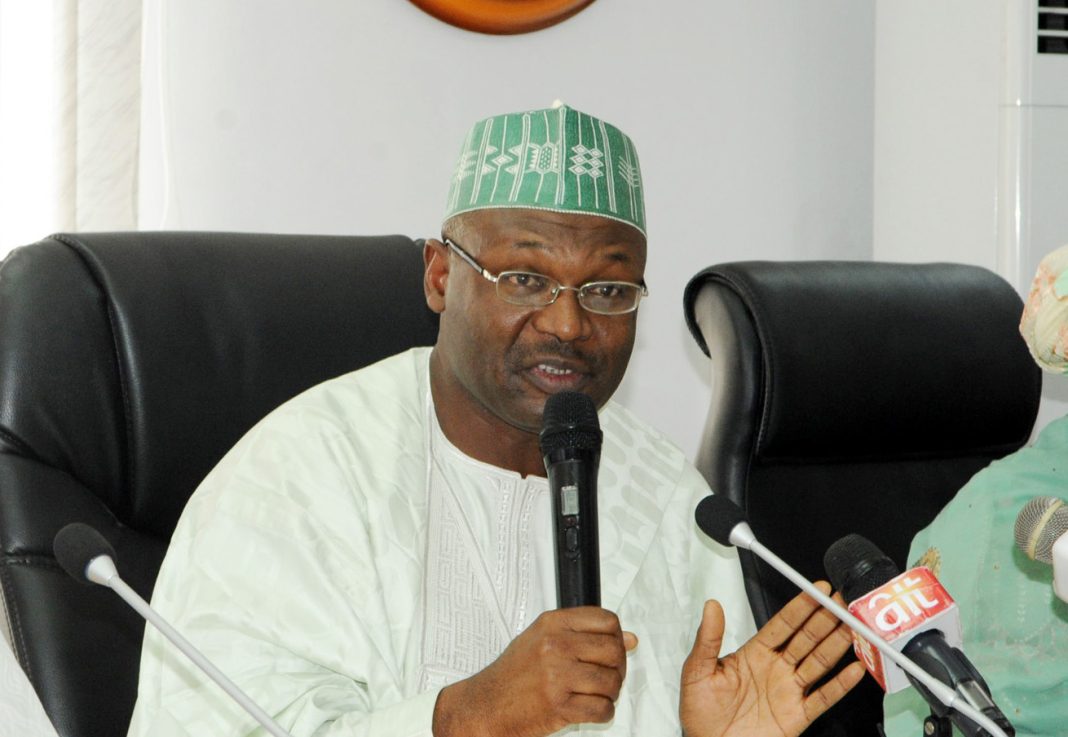ABUJA, Nigeria — Mahmood Yakubu, the chairman of the Independent National Electoral Commission, INEC, risks imprisonment following a contempt lawsuit filed by the Socio-Economic Rights and Accountability Project, SERAP.
The lawsuit alleges that Prof. Yakubu failed to comply with a court order mandating INEC to investigate and prosecute electoral offences arising from the 2023 general elections.
Justice Obiora Egwuatu of the Federal High Court in Abuja issued the initial ruling on July 18, 2024, requiring INEC to address allegations of bribery, vote-buying, and undue influence involving state governors and other officials during the 2023 elections.
The court further ordered INEC to appoint independent counsel for the investigations and ensure the prosecution of identified perpetrators.
Despite this, INEC and Professor Yakubu reportedly have not implemented the judgment, prompting SERAP to seek legal enforcement.
Contempt Warning and Mandamus Orders
The Federal High Court has now served Professor Yakubu a notice of the consequences of disobedience, warning that failure to comply could result in contempt of court charges and potential imprisonment.
The notice reads, in part, “unless you obey the Orders contained in the Judgment of the 18th July 2024…you will be guilty of contempt of Court and will be liable to be committed to prison.”
SERAP Deputy Director Kolawole Oluwadare emailed a statement to The Trent on Sunday, October 27, 2024, expressing frustration over INEC’s non-compliance.
“A democratic state based on the rule of law cannot exist or function if INEC and its chair routinely ignore and/or fail to abide by court orders,” Oluwadare said.
He highlighted the recurring issues of electoral violence and bribery as critical threats to Nigeria’s democratic and economic progress.
Court-Ordered Mandates for INEC
According to the SERAP statement, Justice Egwuatu’s ruling included several orders of mandamus to compel INEC’s actions:
- Independent Counsel Appointment: INEC must seek independent counsel to investigate allegations of bribery, vote-buying, and undue influence against state governors and deputies.
- Thorough Investigations: INEC is required to promptly and thoroughly investigate reports of electoral violence and identify perpetrators and their sponsors.
- Swift Prosecution of Offenders: INEC must ensure that all arrested electoral offenders, currently in the custody of law enforcement agencies, face prosecution.
Justice Egwuatu emphasised the adverse effects of electoral violence and bribery on Nigeria’s development, adding that such offences compromise citizens’ rights to a credible electoral process.
The court’s orders draw on provisions from Nigeria’s Electoral Act 2022, which criminalizes electoral malpractices and mandates INEC’s role in prosecuting offenders.
SERAP’s Push for Accountability
SERAP first approached INEC on July 20, 2024, urging Yakubu to enforce the court’s judgment.
Citing sections 72 of the Sheriff and Civil Process Act and relevant court enforcement rules, SERAP filed the current contempt suit to hold INEC accountable.
No date has been scheduled for the hearing, but SERAP’s legal challenge underscores the ongoing struggle to enforce accountability and integrity within Nigeria’s electoral process.
Looking Ahead to Ondo’s Governorship Election
As Ondo State prepares for its upcoming governorship election, SERAP has called on INEC to address electoral misconduct more vigorously, ensuring fair and transparent voting.
“INEC must turn the page on persistent electoral offences, end the impunity of perpetrators, and ensure citizens’ right to vote and political participation,” read the statement.
The outcome of SERAP’s lawsuit and Professor Yakubu’s response to the contempt charges could shape the credibility of Nigeria’s future elections.







